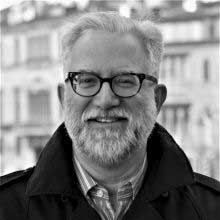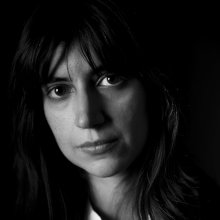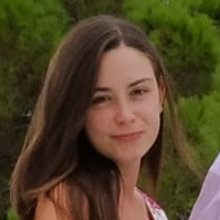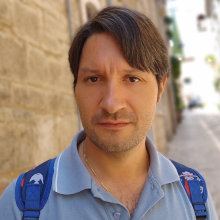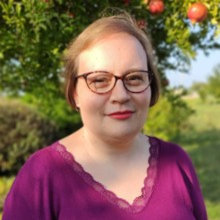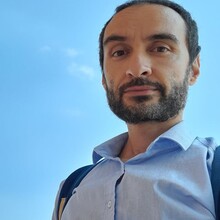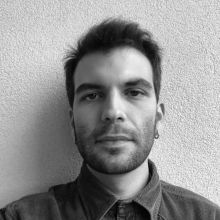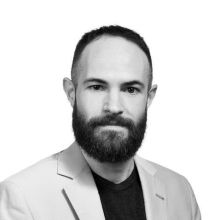Water-Cultures
The Water Cultures of Italy, 1500-1900
February-June 2024 - 5th cycle seminars
- 22 February 2024, 10.00-12.30 (CET), Venice, Department of Humanities (DSU), Malcanton Marcorà, sala Milone: Double seminar: Andrea Toffolon, “L'acqua della Vergine di Monteortone. Conflitti e devozione tra Medioevo ed età moderna”, and Giulia Zanon, “Il ruolo dell'acqua nella diffusione del culto di San Francesco di Paola nel Mediterraneo d'età moderna”
- 21 March 2024, 17.00-19.00 (CET), Venice, Department of Humanities (DSU), Malcanton Marcorà, sala Geymonat: Roberta Cruciata, “La cultura dell'acqua nelle arti decorative siciliane tra dimensione materiale, ornamentale e simbolica”
- 19 April 2024, 10.30-12.30 (CET), Venice, Ca' Foscari, sala Berengo: Simone Cinotto, “L'impero liquido: storia dell'acqua nell'Africa orientale italiana”
|
|
19/04/2024 - Simone Cinotto “L'impero liquido: storia dell'acqua nell'Africa orientale italiana” [ENG]
10.30-12.30 (CET), Venice, Ca' Foscari (sala Berengo). Event to be held in Italian. |
29 KB |
- 24 May 2024, 10.30-12.30 (CET), Venice, Ca' Foscari, sala Berengo: Tessa Storey, “Cosmetic and medicinal waters in early modern Italy: texts, ingredients, people and practices”
- 28 June 2024, 10.30-12.30 (CET), Venice, Ca' Foscari, sala Berengo: Solène Rivoal, “I pescatori veneziani: esperti profani della laguna in età moderna”
Project
What would a history of a society look like with water placed at its core?
The "Water Cultures" concept aims to create a new holistic approach to the study of human interactions with water over time.
It will enable us to write the history and culture of a given society, the construction of its identities and forms of self-representation, based on its changing relationships with water: the ways of controlling, using and conceiving it; the religious, symbolic and knowledge dimensions it assumes, and the forms of cultural production it leads to.
By "water cultures", we mean both material aspects – such as hydraulic engineering, water capture techniques, legislation, and management – and non-material features – symbolic responses, beliefs and practices, changing knowledge.
In the process, "Water Cultures" also aims to contribute historical awareness and sensitivity in the vitally important area water resource use, management and protection.
Research
Focus and methodology
The project focuses on Italy, with its social, political and geographical variety, and its unparalleled wealth and variety of archival resources and rich print history.
These can effectively document the ways in which the history of water is a story of political authority and conflict, social hierarchy and material realities, changing medical and scientific knowledge and technological expertise, and religious beliefs and practices.
The project’s temporal span is 1500-1900, an extended periodisation, in order to track changes and continuities, local variations and regional patterns.
The "Water Cultures" concept is based on the synergistic braiding of five key Streams. These have been chosen to represent the most important elements, approaches and ways of understanding the cultures of water; to inform and shape one another, as they are taken forward; and to constitute innovative subject areas in their own right and fill wide knowledge gaps.
- Springs: from sacred waters to bottled waters.
Explores the complex overlap between the sacred (healing shrines), the medical (thermal springs) and the commercial (bottled mineral water) over time. - The science and health of water.
Explores how the science and medicine of water changed over the full period, how this affected water use and consumption, and how both responded to Asiatic cholera. - Supplying Italian Cities: Large-Scale Hydrological Infrastructure and Water Management.
The capacity to deliver water made the city possible, as did the ability to discharge waste. Focuses on the competing demands put on the urban water supply, adopting a comparative approach. - The hydraulic landscape: irrigation, land reclamation and rural water management.
Rural Italy comprised markedly different hydraulic landscapes, which gave rise to a wide variety of mitigation strategies. This extended to small towns, forced to make the most of the water resources available, often with little assistance on the part of the State. - The occupations of water: skills, status and interactions.
Focuses on the range of actors involved in supplying and utilising water and their social and cultural worlds: how they learnt, how they practised and earned a living, how knowledge and skills circulated.
Team
David Gentilcore
Principal Investigator
Bio
David Gentilcore is professor of early modern history in the Department of Humanities at Ca’ Foscari University Venice. In a range of books, scholarly articles and data sets he has explored the areas where the history of health and healing, the history of food and diet, and social and cultural history come together, with a focus on Italy. Previous research projects have been funded by the Wellcome Trust, the Leverhulme Trust and the Economic and Research Council (all in the UK). His most recent books are Food and Heath in Early Modern Europe (Bloomsbury 2016) and (co-edited with Matthew Smith), Proteins, Pathologies and Politics: Dietary Innovation and Disease from the Nineteenth Century (Bloomsbury 2018). At the moment he is particularly interested in drinking water – its provision, management, consumption, and material and symbolic value – in early and late modern Italy.
Lavinia Maddaluno
Researcher in Early Modern History
Bio
Lavinia Maddaluno is a historian (Cambridge, History Faculty, PhD) and historian of science (Cambridge, HPS Department, MPhil). Her expertise is situated between the history of science and intellectual history, and her central research question concerns the role of scientific knowledge production in the realisation of ideas of wealth, state and society in early modern Europe. She has held fellowships at the British School at Rome, The Scaliger Institute (Leiden), the Università Federico II (Naples), and the EUI (Florence) and has been the first recipient of a joint Warburg/Villa I Tatti fellowship for the History of Science. In the context of the “Water Cultures” project, Lavinia will be examining how medical knowledge regarding the quality of waters and airs was produced in relation to land management, and of rice and cheese production especially, in the Spanish Habsburg Duchy of Milan.
Gaia Bruno
Researcher in early modern history
Bio
Gaia Bruno is the author of Le ricchezze degli avi. Cultura materiale della società napoletana nel Settecento (Naples, 2022). Having obtained her PhD in the History of European Society from the University of Naples "Federico II" with a thesis on the history of material culture (2016), she was post-doc at the same university for the research projects ‘STAR: Disasters, communication and politics in south-western Europe’ (PI Prof. Domenico Cecere) and, successively, ‘DeCiVe: Dealing with the collective interest in early modern Europe’ (PI Prof. Diego Carnevale), on the topic of waters. She has been with the Water-Cultures project since 2020. Amongst her journal articles: "Vivere a Napoli nel XVIII secolo: il Tribunale della Fortificazione, Acqua e Mattonata", Società e Storia (2018). For this project she is preparing a critical edition of the "Vari Discorsi", an illustrated manuscript produced by the ‘fountaineer and water engineer’ Giovanni Antonio Nigrone at the end of the 16th century (held in the National Library, Naples) and will be pursuing her research on the hydraulic infrastructure of early modern Palermo.
Oscar Schiavone
Post-doc
Bio
Oscar Schiavone graduated at the Scuola Normale Superiore di Pisa (2005) and went on to obtain two PhDs: one from the Universities of Florence and Bonn (2009) and another from University College London (2016). He then became a Teaching Fellow at UCL and Durham University (2014-21), before working as a Senior Research Fellow at the Medici Archive Project (2021-22). Oscar’s research, teaching experience, and publication record is interdisciplinary in nature. He has authored a book on Michelangelo Buonarroti, which won the Giuseppe Giusti literary award in 2014, as well as articles and book chapters on environmental and territorial management, migration and identity, cultural reception, and the intersection of forms of knowledge. He is editing Brill’s forthcoming "Companion to Ferdinando I de’ Medici" and collaborates with the journals "Albertiana", "Artes Renascentes", and "Rassegna della letteratura italiana". For the “Water-Cultures” project, Oscar is investigating the role of water as resource in the pursuit of health, primarily focusing on baths, bathing practices, and medicinal waters as recorded in early modern archival (and printed) sources across Medici Tuscany.
Rachele Scuro
Post-doc
Bio
Rachele Scuro is an economic historian whose primary interests focus on Venice and the Venetian State, and Jewish history between the late medieval and early modern period. She graduated in History at Ca’ Foscari University and later earned a PhD in Medieval history at the University of Siena. She has worked as a post-doctoral researcher at the universities of Basel, Verona, Milano-Bicocca and Ca’ Foscari. She has also been part of the research project Technological Invention and Architecture in the Veneto in the Early Modern Period, based at the University of Cambridge. For the “Water-Cultures” project she is investigating the relations between environment, institutions and economics in the Venetian Mainland State, with regard to the use and management of water resources.
Salvatore Valenti
Post-doc
Bio
Salvatore Valenti studied History at “La Sapienza” University of Rome and in 2016 I joined the Centre for Urban History at the University of Leicester, where I completed his PhD in 2021. He was born in Sicily where the Mediterranean and the Ionian see meet. For this reason, perhaps, water and its relationships with societies are his favourite subject of enquiry. Rivers, lakes, channels, streams, aqueducts, fountains are something which he always looks for, including in his cycle bike rides in and around Rome, the city where he lives. For the “Water-Cultures” project he is undertaking a comparative study of changing hydraulic infrastructure in several Italian cities and their hinterlands during the nineteenth and early twentieth centuries.
Bio
Samuel Barney Blanco received his BA in French and English bilingual history from the University of Toulouse—Jean Jaurès (France), with a third-year study mobility at the University of Saint Andrews (UK). He then obtained an MA in medieval studies at the University of Toulouse—Jean Jaurès, specialising in 14th-century guilds, corporations and other urban communitarian institutions in central and northern Italy. He is currently interested in the study of fresh water management communitarian politics in Late medieval and Early Modern western Mediterranean regions, with a focus in 16th-century irrigation and consumption management associations in the Venetian Terraferma for his ERC-funded PhD.
Dario Bassi
PhD student
Bio
Dario Bassi is a former aspiring philosopher who later turned into an anthropologist who actually looks into the past. He graduated in Philosophy at the University of Milan and then obtained a Master’s Degree in Anthropological Sciences at the University of Milan-Bicocca. He is fascinated by how socio-cultural practices and meanings shape human existence, both collectively and individually. Now that his research focuses on the interactions between human groups and the water element in an Alpine area of Italy, for his ERC-funded PhD, the task is far more intriguing as these are highly changeable, persistent and ambivalent at the same time. Cycling (not professionally) along waterways and playing music always make him feel great.
Andrea Toffolon
PhD student
Bio
Andrea Toffolon holds an MA in History and an MA in Art History, both from the University of Verona. He is the author of a monograph on clashes and feuds in a border area of the Republic of Venice: Montagne di sangue. Faide, violenza e giustizia a Belluno in età moderna, and from 2017 is co-editor of the book series “Parentesi Storiche” (QuiEdit). His ERC-funded PhD thesis focuses on the therapeutic uses of thermal waters and the overlap between medical and religious aspects in the spas of the Republic of Venice (1550-1800c). He is also interested in the rhetorical and propaganda features of printed treatises that deal with foundation myths.
Bio
Antonio Ferigo has a degree in Politics, Administration and Organization from the University of Bologna, focusing on the relationship and the integration of the EU laws in the Italian context, especially in public administration. Since then, he has worked on EU co-operation projects, with a focus on the INTERREG Italy-Austria and Italy-Croatia programmes, dealing both with the management and auditing phase and the project design stage. He has also contributed to project planning for the Fondazione Cariverona. He is currently completing a Masters in Policy Innovation and Sustainability Impact Assessment at the University of Padua, in the Dept. of Political Sciences, Law and International Studies.
Bio
Giacomo Bonan was fomerly Researcher in the History of Science and Technology at the Water Cultures project and is now assistant professor in the Department of History, University of Turin. He is Italian regional representative for the European Society for Environmental History. He has worked at the Division of History of Science, Technology and Environment at the Royal Institute of Technology in Stockholm; the Centre for the History of the Alps at the University of Italian Switzerland; the Department of History and Cultures at the University of Bologna; the Historisches Seminar at the Goethe-Universität Frankfurt and the Rachel Carson Center in Munich. He is member of the editorial board of the journals Global Environment and Passato e Presente. He is the author of The State in the Forest (Cambridge, 2019) and Le acque agitate della patria (Rome, 2020). His research interests include forest history, water history and rural social conflicts associated with modernisation.
Bio
Ana Duarte Rodrigues is professor of history of Science at the Department of History and Philosophy of Science, Faculty of Sciences, University of Lisbon. She has pursued an unusual path, crossing disciplinary boundaries of history of art, garden and landscape studies and history of science, developing a truly interdisciplinary research on gardens, water and historic books from the sixteenth to the nineteenth century. She has co-ordinated several multidisciplinary projects funded by the Portuguese Foundation for Science and Technology, most recently: ‘Sustainable Beauty for Algarvean Gardens: Old Knowledge to a Better Future’ (2015-2019); and ‘Horto Aquam Salutarem: Water Wise Management in Early Modern Gardens in Portugal’ (2018-2022). She has worked extensively with landscape architects, agronomists, architects and hydraulic engineers. From 2020 she has been the co-ordinator of the Inter-university Centre for the History of Science and Technology. Her publications include the co-edited volume (with C. Toribio Marin), The History of Water Management in the Iberian Peninsula (Springer 2020), O Triunfo dos Jardins (National Library of Portugal, 2020), as well as numerous scholarly articles, most recently, ‘Building green urban xxpertise: politicians, agronomists, gardeners and engineers at Lisbon City Council (1840-1900)’, Urban History (2022), pp. 1-20, and (co-author), ‘The water culture of the Order of Christ in the making of hydric self-sufficient and sustainable hydric systems’, Historia Agraria (in press).
Bio
Petra J. E. M. van Dam holds the Chair for Water and Environmental History at the Free University (Vrije Universiteit - VU), Amsterdam, in the Faculty of Humanities. She investigates environmental change and resilience to nature-induced disasters, for instance in the current research project ‘Coping with Drought: An Environmental History of Drinking Water and Climate Change in the Netherlands, 1550-1850’. Funded by the Dutch Research Council (NWO), the project focuses on drinking water and in particular on coping with water shortages due to drought in Dutch cities during the early modern period. As vice-chair of the European Society for Environmental History, Petra co-organised the ESEH Summerschools and the ESEH Amsterdam 2007 Conference, ‘Global Perspectives’. She is co-founder of the VU Environmental Humanities Center. Her recent publications include: ‘The great transformation of the dune ridge landscape. How water management, peat extraction and sand excavation led to agricultural innovation in the dune region between Haarlem and Leiden, 1400-1650’, in Communities, environment and regulation in the premodern world. Essays in honour of Peter Hoppenbrouwers (Turnhout 2022), 177-200, and ‘From clean canals via stinking canals to wastewater treatment plants. The quality of surface water in Dutch cities, 1500-1970’ (in press).
Publications and resources
Publications
- David Gentilcore, "In Praise of the Ordinary: Shifting Knowledge and Practice in the Medical Use of Drinking Water in Italy, 1550–1750", Bulletin of the History of Medicine (Winter, 2023)
- Andrea Toffolon, "The Sacrality of Water. Religion and Medicine in the Spas of the Early Modern Veneto", Histoire, médecine et santé (2023)
- Gaia Bruno, Giacomo Bonan, "Contro l’azione struggitrice del tempo”. Progetti di ripristino dell’acquedotto Claudio [ITA], Archivio Storico Italiano (2023/2024)
- Lavinia Maddaluno, "Public health in Milan", The Renaissance World (Routledge Resources Online)
- Giacomo Bonan, Hydraulic Engineers and Antiquarians: Political Use of the Past in Nineteenth-Century Venice, in Technology and Culture:
- Gaia Bruno, "Fate voi e fate meglio". La gestione delle risorse idriche a Palermo in età moderna. In: L’acqua: risorsa e minaccia. La gestione delle risorse idriche e delle inondazioni in Europa [ITA]
- David Gentilcore, "La qualità delle acque". Le risorse idriche nel Regno di Napoli agli inizi dell’Ottocento. In: L’acqua: risorsa e minaccia. La gestione delle risorse idriche e delle inondazioni in Europa [ITA]
- Lavinia Maddaluno, "Faire participer le publique de la bonté de la dite eau". Negotiating urban waters in 17th-century Marseille. In: L’acqua: risorsa e minaccia. La gestione delle risorse idriche e delle inondazioni in Europa [ITA]
- David Gentilcore, Decadent Infrastructure? Representations of Water in the Kingdom of Naples in the Early Nineteenth Century, in: Environment and Infrastructure (De Gruyter)
- David Gentilcore, The cistern-system of early modern Venice: technology, politics and culture in a hydraulic society in WATER HISTORY, vol. 13, pp. 1-32
- David Gentilcore, “Cool and tasty waters”: managing Naples’s water supply, c. 1500–c. 1750 in WATER HISTORY, vol. 11, pp. 125-151
- Gaia Bruno, Le ricchezze degli avi. Cultura materiale della società napoletana nel Settecento [ITA]. Federico II University Press, 2022
- Giacomo Bonan, Le acque agitate della patria. L’industrializzazione del Piave (1882-1966) [ITA], Viella
- Giacomo Bonan, An Alpine Energy Transition: The Piave River from Charcoal to “White Coal” in ENVIRONMENTAL HISTORY, vol. 25, pp. 687-710
- Lavinia Maddaluno, Materialising political economy: olive oil, patronage and science in eighteenth-century Rome, vol. 5, pp. 95-115
- Lavinia Maddaluno, Forests, Woods, Roads Agricultural Landscapes as Instruments for the Material Administration of an Eighteenth-Century Tuscan Periphery in, AA.VV. Florence After the Medici Tuscan Enlightenment, 1737-1790. Routledge, pp. 199-223
- Salvatore Valenti, Water in the Making of a Socio-Natural Landscape. Rome and Its Surroundings, 1870–1922. Routledge, 2022
Resources
"In conversation with"
This is a series of short filmed conversations between members of the Water-Cultures team and renowned international scholars working in the field. They discuss what drew them to their respective topics, the sources and approaches they use in their research, challenges faced and future directions.
Events
2024
2023
2022
2021
|
|
Andrea Toffolon, "Differenziazione negli usi e negli accessi all'acqua termale, tra umano e non umano"
Verona, 7 December 2021 |
202 KB |
|
|
Giacomo Bonan, "Acque e boschi, un rapporto mutevole" [ITA]
Istituto Istruzione Superiore Antonio Della Lucia, Feltre (public engagement), 26 November 2021 |
2 MB |
|
|
David Gentilcore, "Theory and practice in the medical use of water, 1500-1750", and Lavinia Maddaluno, "Practising Public Health in Late-Renaissance Milan"
"Medicine in Early Modern Italy: Between Theory and Practice", Florence, 19th November 2021 |
3 MB |
|
|
Giacomo Bonan, "Ambiente e lavoro nei disastri innaturali" [ITA]
Venice, 18th November 2021 |
162 KB |
|
|
Giacomo Bonan, "Oltre lo scambio colombiano: l’ambiente in età moderno-contemporanea tra globale e locale" [ITA]
Milan, 18th November 2021 (with Stefania Gallini) |
281 KB |
|
|
David Gentilcore, "Americans in Italy, or how three plants from the New World changed Italian cuisine"
Wisconsin, 16th November 2021 |
232 KB |
- Andrea Toffolon, "Holy Spas. Religion and Medicine in Early Modern Venice" [FRE]
Paris, 27th October 2021
|
|
Dario Bassi, "Relazioni materiali e immateriali dei valtellinesi con l'elemento dell'acqua (sec. XVIII-XIX)" [ITA]
Padua, 30th September 2021 |
5 MB |
|
|
David Gentilcore, "Decadent Infrastructure? Representations of Water Provision and Management in the Kingdom of Naples in the Early Nineteenth Century"
Environment and Infrastructures from the Early Modern Period to the Present, Trento, 24 September 2021 |
362 KB |
|
|
David Gentilcore, "'For the universal benefit of the health of this city': Water, waste disposal and the urban environment in Europe, 1500-1750"
5th International Conference on Ecotechnologies for Wastewater Treatment/International Water Association, Milan, 23 June 2021 (Plenary) |
110 KB |
|
|
Gaia Bruno, "The Art and Science of Waters: Knowledge, Identity and Practice in the Work of Giovanni Antonio Nigrone (c. 1585-1608)"
Scientiae conerence, Amsterdam, 9 June 2021 |
1 MB |







